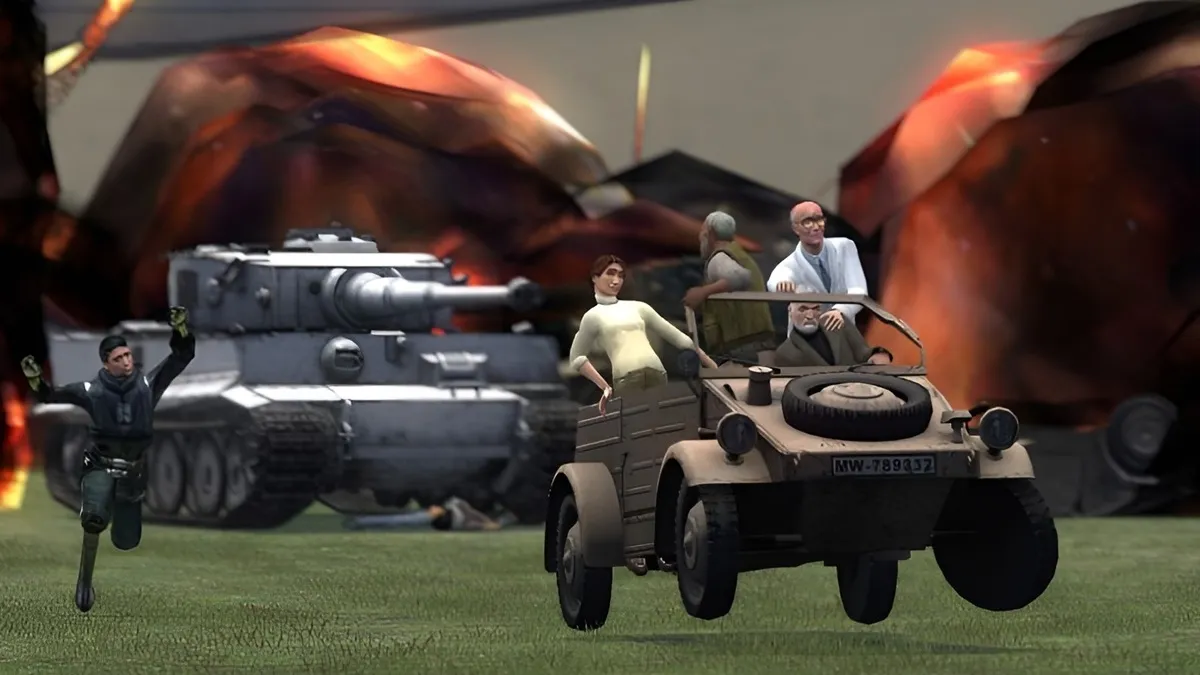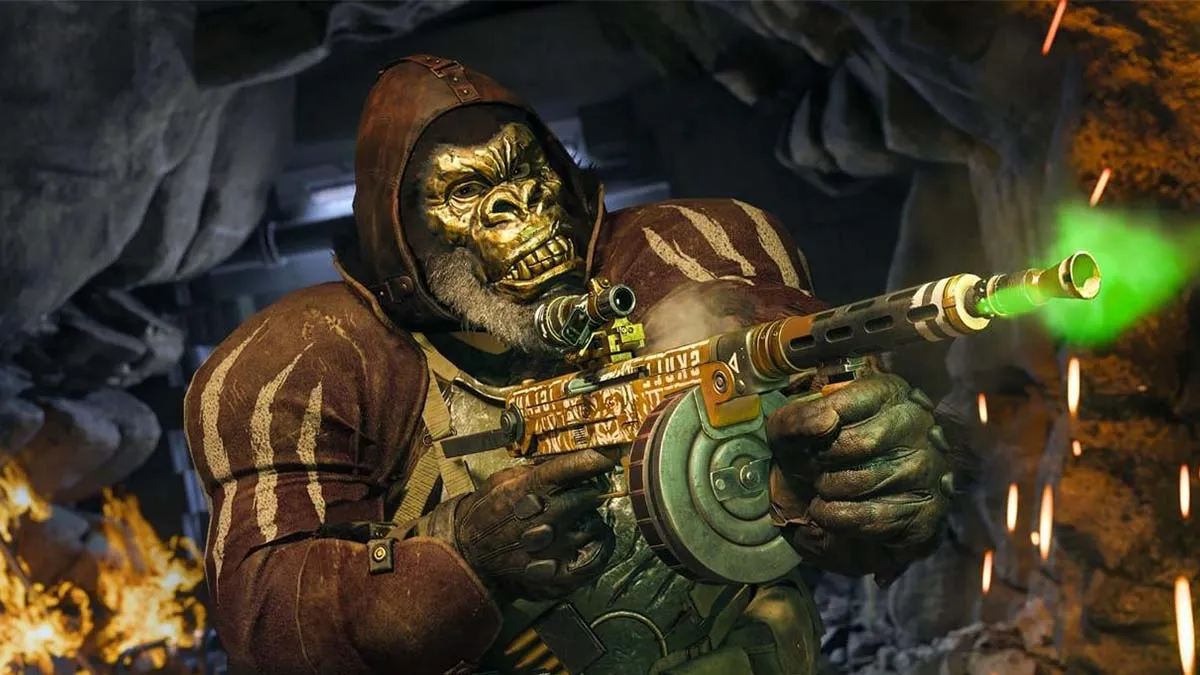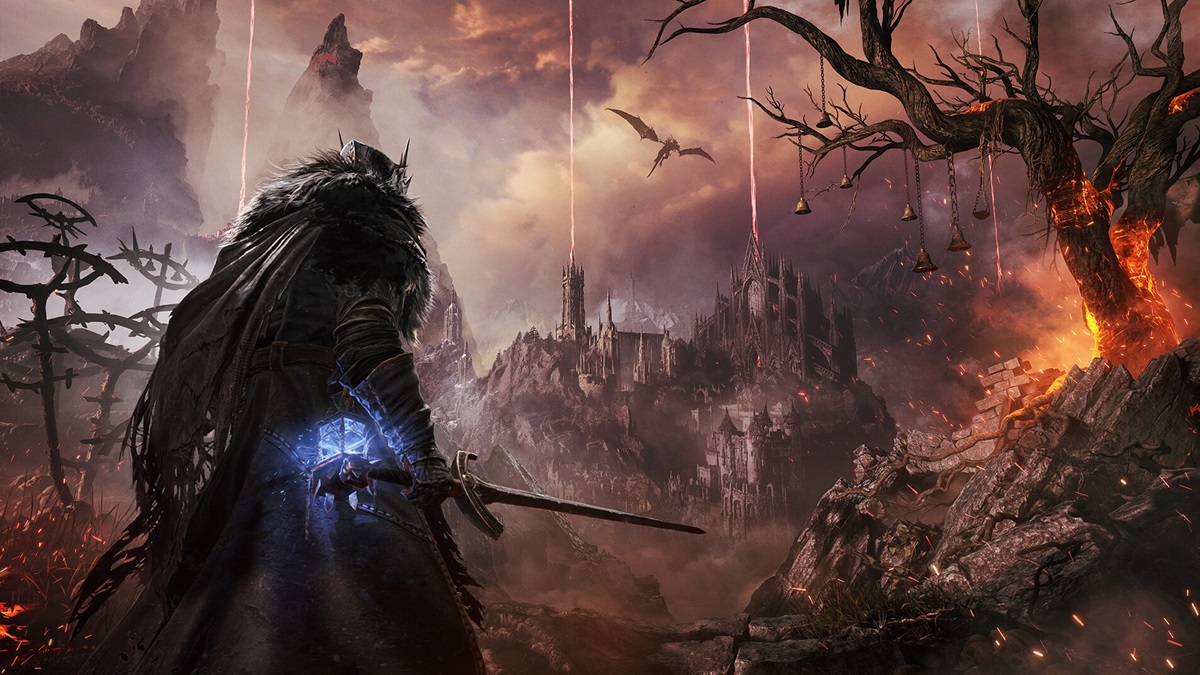
Slightly over a year ago, I interviewed Danny Ledonne about his first (and so far, only) independently-developed videogame, Super Columbine Massacre RPG!. Then again, maybe “interviewed” isn’t the right word: over the course of about an hour, I lambasted him over what I felt to be the game’s most thematically ineffective and irresponsible aspect (namely the second half of the game, set entirely in Hell) and we essentially argued back and forth to no ultimate conclusion.
Now, three years after the game’s initial release, Ledonne has released Playing Columbine. Produced and directed by Ledonne, this documentary discusses both the controversy surrounding his game, and the current state of videogames as a serious artform.
Initially, I scoffed at the idea of such a documentary. Even ignoring my own irritation toward Ledonne’s game, the prospect of a filmmaker making a documentary about himself whilst simultaneously denying any desire for personal attention rubbed me the wrong way. That said, though, when Ledonne contacted Dtoid with a review copy, I still jumped at the chance to watch it.
Was it as self-aggrandizing as I thought it would be? Is it a legitimate discussion about the nature of violence, particularly when conveyed through interactivity, or is it merely a 100-minute attack on Ledonne’s critics?
Hit the jump for Dtoid’s official review.
First things first: this documentary is nowhere near as bad as I thought it would be. It is, at times, choppy, simplistic, and not even remotely subtle, but it is not the masturbatory Ledonne-filmed, Ledonne-produced lovefest-about-all-things-Ledonne that I had originally feared it would be.
Playing Columbine claims to primarily be about the controversy surrounding the director’s game, but it wisely opts instead to spend more time talking about the general demonization of videogames as an artistic medium, and the nature of school violence. Super Columbine Massacre RPG! is used as a jumping-off point to discuss much broader, much more interesting issues: for this, the director is to be commended.

Apart from a few self-interviews and lecture clips sprinkled evenly throughout the film, you don’t really feel the presence of Ledonne the Director as he tells the story of Ledonne the Designer. The vast majority of the film relies on (quite compelling) interviews with numerous personalities based in or around the games industry — you’ll find immeasurably more directorial intrusion in a typical Michael Moore film. I know that’s not saying much, but my point is, this documentary sounds far more pretentious and self-serving than it actually is.
Ledonne assembles a truly noteworthy cast of game designers, media professors, and school shooting survivors who are able to look at the issues he presents from totally different angles. In the first act alone, we get to hear the interviewees talk about games as experimentational play, games as social commentary, and the generation gap between gamers and critics of the medium. Hearing guys like Ian Bogost and Hal Halpin talk about games as art just plain never gets boring, and we’ve frankly never seen a cast of videogame personalities this large or prestigious assembled in documentary form, and getting to hear all their varying viewpoints is an absolute pleasure.
These differing viewpoints and topics, however, can admittedly result in a film that does feel somewhat disjointed. The documentary jumps from a general games-as-art discussion to interviews with survivors of the Dawson College shooting, to a specific retelling of the controversy surrounding the game’s Slamdance pulling, with Ledonne’s game only barely holding the disparate discussion threads together.

I wouldn’t necessarily call this a fault of the film, however; it tackles many topics in an occasionally jarring manner, but it never feels confusing or distancing for very long. When the documentary was over, I felt that I’d actually just watched three smaller documentaries, rather than one cohesive film: since these three little documentaries were different in subject matter and totally engrossing, however, I had almost no problem with the film’s occasionally choppy pacing.
If there is one editing issue which sticks out as being particularly problematic, however, it is Ledonne’s disrespect for the viewer’s attention span. During literally every minute of the film, the viewer is assaulted with quick cutaways to stock footage and obtrusive graphics which Richard Dawkins would refer to as “Lord Privy Seals.”
Allegedly some sort of British filmmaking joke, the Lord Privy Seal identifies an unfortunate habit amongst documentarians who feel the need to emphasize every single word spoken by an interviewee by cutting to a picture or piece of stock footage illustrating the word in question (“The Lord Privy Seal is an antiquated title in Britain’s heraldic tradition,” Dawkins says; “The joke imagines a low-grade film director who illustrates it by cutting to a picture of a Lord, then a privy, and then a seal.). By the end of the film, I felt somewhat exhausted by the sheer number of (thankfully audio-devoid) clips and bits which fill the numerous interviews which are compelling in their own right.

Ledonne also has an inexplicable habit of reminding the audience who certain interviewees are through use of large subtitles…even though the film has already introduced them, and featured them repeatedly throughout the duration. With only fifteen minutes left in the documentary’s running time, the audience is still being told who Tracy Fullerton is. Why?
These superficial problems are peanuts, however, to the documentary’s ultimate flaw: its lack of legitimate dissenting opinion. While Ledonne includes some very brief interview clips with critics of his game and his personal politics, their opinions are almost immediately stifled by a torrent of lengthier, kindly-edited dissenting views from game designers and independent filmmakers. Less than thirty seconds after being introduced, Jack Thompson is immediately portrayed as a hypocritical douchebag when the interviewer calls him out for contradicting his current statements about the Dawson shooting with those he made on Fox News a year earlier.
I never thought I’d ask for the opportunity to hear Jack Thompson talk more about the danger of videogames, but given the immediate bitchslapping he receives by the hand of the editor and the other interviewees, one can’t help but feel sorry for him and the other anti-SCMRPG! critics Ledonne briefly features. The statistics and arguments Ledonne uses to defend videogames are completely fair, but his presentation of the opposition sadly isn’t.

In the end, and despite all its technical flaws and blatant stacking of the deck in Ledonne’s favor, I can’t think of a single reason why the average gamer (or indeed, the average parent) shouldn’t watch Playing Columbine. It includes some truly interesting dialogue from the biggest names in the games-as-art movement, it covers a a broad range of topics without necessarily feeling like it overreaches itself, and it avoids the pitfall of focusing too much on the original game and its creator.
I still think SCMRPG! is a hypocritical, ineffective work of art whose latter half entirely undermines the brilliance of the former, but I’ll be damned if I didn’t enjoy Playing Columbine.



